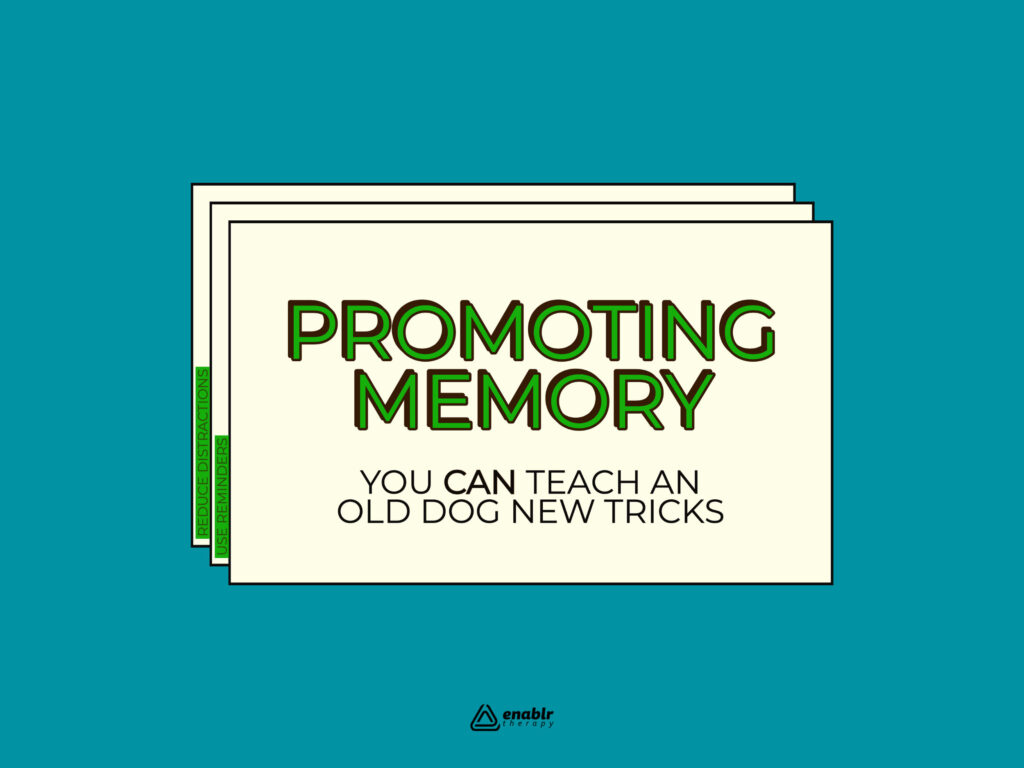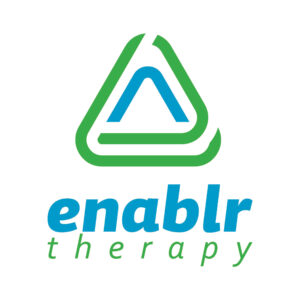
We have all done it. Forgotten the name of someone that we know; where we left our keys or put our shoes; an appointment, meeting, or gathering that we were supposed to attend. Returned from the grocery store only to realize that we forgot to buy that one item that we went to get. Occasional memory loss is normal and expected.
Impact of Memory Changes

Although most people will notice some memory loss and decreased cognition with aging, older adults are still able to learn and grow. Older individuals have life experiences that accumulate into a wider knowledge base, more vocabulary and a greater understanding of word meanings than younger people. However, they can learn and form new memories, just not at the same speed as they did when they were younger.
Promoting Memory Skills
Certain activities and strategies can help sharpen memory and thinking skills in older adults. Below are a few tips and tricks to promote memory and clear out the cobwebs in the brain.
1. Use Reminders
Use a calendar, to-do and shopping lists to provide reminders. Organize important information like medical information, medication lists, addresses and phone numbers, birthdays, bill due dates, passwords, and any other information that is used on a regular basis into a notebook or electronic planner/document. Consider handwriting the reminders as sensory input from the act of writing activates different areas of the brain and can help with recall. Once you have systems in place, be consistent in updating and using them.
2. Keep Everything In Its Place
Keep items that you use regularly in a consistent place in the location where you use them. For example, put your shoes in a basket by the door or keys in a basket on the table.
3. Create Regular Routines
Doing the same daily routines can help us to develop rote memory. For example, a morning routine may consist of taking medicine, brushing hair and teeth, putting on deodorant, and washing the lenses on a pair of glasses before leaving the bathroom. Routines can also be created for household chores and maintenance like changing the smoke detector batteries with each time change in the spring and fall.
4. Talk Out Loud
Review steps or tasks to be done by saying them out loud and repeating them a few times. Again, the motor and sensory processes involved in speaking and hearing can help with recall.
5. Reduce Distractions
Improve concentration by minimizing distractions. Turn off the television or radio when engaging in a phone conversation, writing a letter or email, or paying a bill, for instance. Do only one thing at a time.
6. Socialize
Social connections and interactions can help to reduce depression and stress which impact memory. Make arrangements to spend with family, friends, or social groups. Consider volunteering.
7. Stay Active
Physical activity can help to keep the body and brain strong as activity promotes blood flow to the brain. The CDC recommends at least 150 minutes of activity a week. The activity does not need to be done all at once, it can be broken up. For instance, try walking 10 minutes at a time, 2-3 times per day.
8. Exercise Your Mind
Keep mentally active by engaging in stimulating activities. Work puzzles, play games, read books, play an instrument, and learn about new things.
9. Manage Medical Conditions
Eat healthy, take medications regularly, follow doctor’s recommendations, and get rest are all part of a healthy lifestyle that can help to manage and reduce medical issues that impact cognition.
If you or a loved one has experienced memory or cognitive loss due to illness or injury and it is impacting everyday life, Enablr Therapy’s speech language pathologist or occupational therapist may be able to help. View our Therapy Services page to learn more.
References
Center of Disease Control. (n.d.). How Much Physical Activity Do Adults Need? Retrieved from https://www.cdc.gov/physicalactivity/basics/adults/index.htm
National Institute of Aging. (n.d.). How the Brian Affects Thinking. Retrieved from https://www.nia.nih.gov/health/how-aging-brain-affects-thinking



